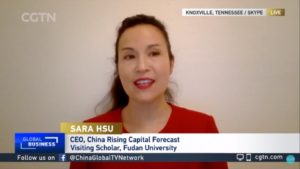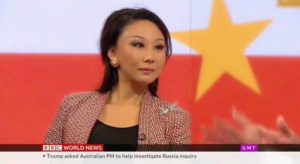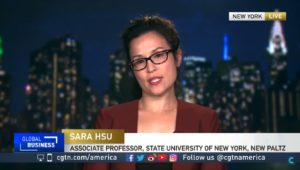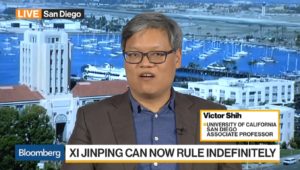
While most of the world is still investigating and trying ways to use a digital currency for their countries, this is more than obvious for China, says fintech expert Sara Hsu in the Raconteur. China is already close to being cashless and many places no longer accept notes and coins.
The Raconteur:
Why has China launched the digital yuan while other major economies are still carrying out consultations and trials?
“To cater to its population’s needs as people use cash less and less,” says Dr Sara Hsu, associate professor of supply chain management at the University of Tennessee, Knoxville, and the author of China’s Fintech Explosion.
Hsu points out that because of the widespread use of Alipay and WeChatPay, which link people’s bank accounts to a digital wallet, China is already close to being cashless and many places no longer accept notes and coins.
“In addition, China has been opposed to decentralised digital currencies, such as Bitcoin [which was banned last year], and this is its answer to crypto,” she adds…
China has said that the e-CNY will offer “controllable anonymity”, but what does that mean in practice? “The authorities can see which digital wallet the digital yuan is in and digital wallets are tied to individuals,” says Hsu.
Authorities will be able to trace transactions and carry out compliance checks including anti-money laundering and know your customer. The user can choose to be anonymous to counterparties, which some have argued will be a disadvantage for online platforms. …
Challenging the dollar’s reserve currency status has also been mooted as a reason for the e-CNY. China is the world’s biggest producer of rare earth metals, which are increasingly in demand for rechargeable batteries and electronics, among other things. Could China move to “de-dollarise” the trade in rare earths? “It is possible,” says Hsu, “but, the digital yuan is like cash so that would likely take second place to normal account transfers.”
Hsu says it’s also not clear how the digital yuan could be tracked cross-border or whether it will be able to collect the identification information of overseas citizens.
Sara Hsu is a speaker at the China Speakers Bureau. Do you need her at your meeting or conference? Do get in touch or fill in our speakers’ request form.
Are you looking for more fintech experts at the China Speakers Bureau? Do check out this list.
































